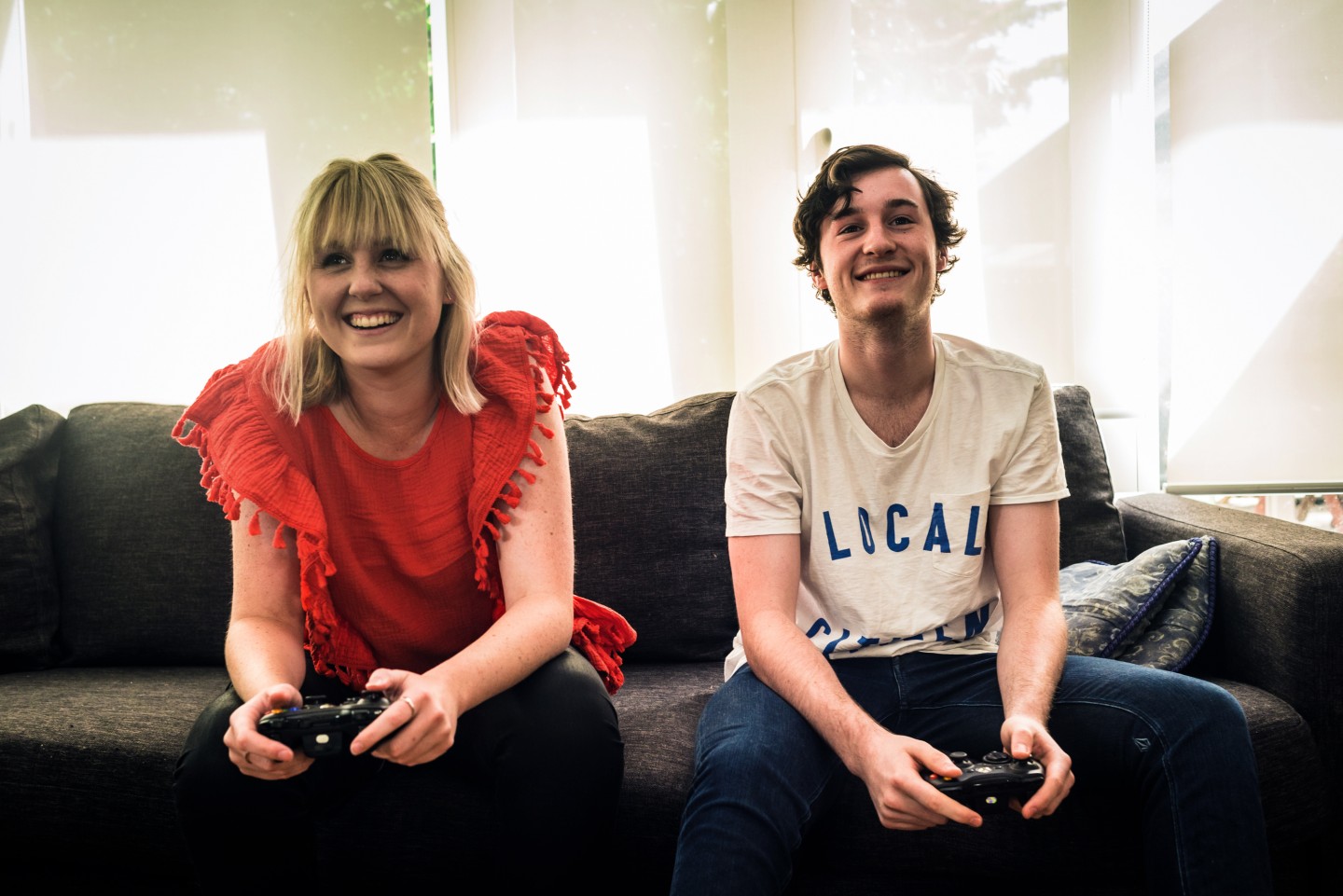Is gaming good for you?
Gaming can be a positive and enjoyable activity. It can help us connect with others, feel a sense of belonging and provide opportunities to learn new skills. Healthy gaming can give us some beneficial downtime, relaxation and fun. It can also be helpful when it’s included into a routine that provides structure into your day.
However, for an increasing number of young people, gaming can have a negative impact on their everyday lives.
If you think that your gaming is beginning to interfere negatively with your life, there are lots of things you can do get some balance back.
Download our fact sheet on maintaining healthy gaming
(PDF 491kb)
Signs of possible problems with gaming
Gaming can be a great way to reduce stress. But increased or excessive gaming time can take away from healthy habits and activities. For example, you might find that you’re spending less time than usual with people you care about. You might be less active than usual or find that you are having trouble with sleep, studies or work.
If you are experiencing some of the changes below, it might be a sign that gaming is starting to have a negative impact on your everyday life:
- feeling sad, irritable, anxious, frustrated or angry when you’re not gaming
- changing sleep patterns or sleep difficulties e.g., getting up early or staying up late to game
- being angry or experiencing conflict with others over gaming
- other people expressing concern at the amount of time you spend gaming
- Frequently feeling frustrated at losses for longer periods of time
- spending less time with family and friends outside of gaming
- being preoccupied with gaming (spending large amounts of time thinking about the next gaming session or past sessions), including:
- losing track of time or feeling a loss of control over the time you spend gaming
- spending lots of time thinking about the next gaming session or past sessions
- feeling physical pain or irritation, for example pain in your neck, wrists, or back, dry or red eyes
- eating meals while playing or skipping meals
- spending more money than you can afford on new games or in-game purchases
- using gaming as a way of avoiding the real world
- unsuccessful attempts to quit gaming or cut back
- losing track of time or feeling a loss of control over the time you spend gaming
You might also notice other changes in your life that don’t appear directly related to your gaming such as:
-
loss of interest in activities that you previously enjoyed
-
lowered self-esteem or self-confidence
-
changes to eating habits
-
headaches/migraines
-
decreased personal hygiene
-
difficulties with studies or work.
Gaming and related mental health problems
People who have difficulty with gaming may also be experiencing other mental health conditions, for example, difficulty with their mood and sleep.
Tips to help maintain healthy gaming
There are a lot of tips that can help with keeping your game time in balance. Time spent gaming can sneak up without you realising it. Here are some things that you could consider:
-
Leave gaming time for after your jobs are done. Treat it as a reward.
-
Decide in advance how much time you want to spend online. Set a timer or an alarm.
-
Set up times in your day to be game free.
-
Explore other hobbies and interests that help give you balance.
-
Get up and move regularly. Doing some simple stretches during your gaming breaks can really help.
-
Make sleep a priority. Charge your devices outside of your room or perhaps don’t have them in your bedroom at all. You will reduce the temptation to be online instead of sleeping.
-
Check-in with yourself to see how gaming is impacting your life. Ask yourself questions like:
-
What has changed since you started gaming more frequently?
-
How are these changes impacting you?
-
Is it fun and helping you to feel good?
-
Does it support you to have a healthy life or take away from it?
-
FAQs about healthy gaming
Do I have a gaming disorder?
Not everyone agrees on the definition and treatment of “gaming disorders”. There is still more research to be done. However, we hope this information gives you some ideas and tips to help you maintain a healthy balance. If you have concerns that your gaming is having more severe impacts on your life, please contact a mental health professional who can provide individualised clinical support.
Why can’t I sleep well after gaming?
It can be common to have sleep difficulties when you are gaming late into the night or for long periods during the day. Check out our factsheet on how to manage sleep and gaming here.
What if I’m being pressured to game for longer, or ‘get on’ when I don’t want to?
We understand it can be difficult to say ‘no’ to friends sometimes. It’s important to remember that gaming can impact people differently and sometimes your routines and habits may not look the same. It’s ok to tell your friends that you need different ways to connect, if gaming is impacting you negatively.
When do I know it’s time to log off?
There is no set healthy amount of gaming time that researchers have agreed on. The Australian Physical Activity & Sedentary Behaviour Guidelines (published by the Australian Department of Health) suggests no more than two hours per day for 12-17 year olds. This is not including purposeful screen time (activities that are interactive like work or school and in some cases gaming).
If you notice that your gaming and internet use is stopping you from engaging you in your other interests, impacting on your relationships or work/study, then this might be a sign you are gaming for too long.
Where can I get help?
If you believe gaming is negatively affecting your relationships, mood, studies or work, it’s a good idea to reach out to someone you trust. You could talk with a parent, teacher, school counsellor, Elder, family member or friend. A general practitioner (GP) is another good place to start when seeking help and information. You can also contact eheadspace (our phone and online service) your local headspace centre, or Kids Helpline if you wanted to talk to somebody about your internet and gaming use.
With the right support, most people are able to get back to enjoying the benefits that gaming and internet use can contribute to their lives.
The headspace Content Reference Group oversee and approve clinical resources made available on this website.
Last reviewed 27 November 2024
Get professional support
If you feel you need help there are a range of ways we can support you.


